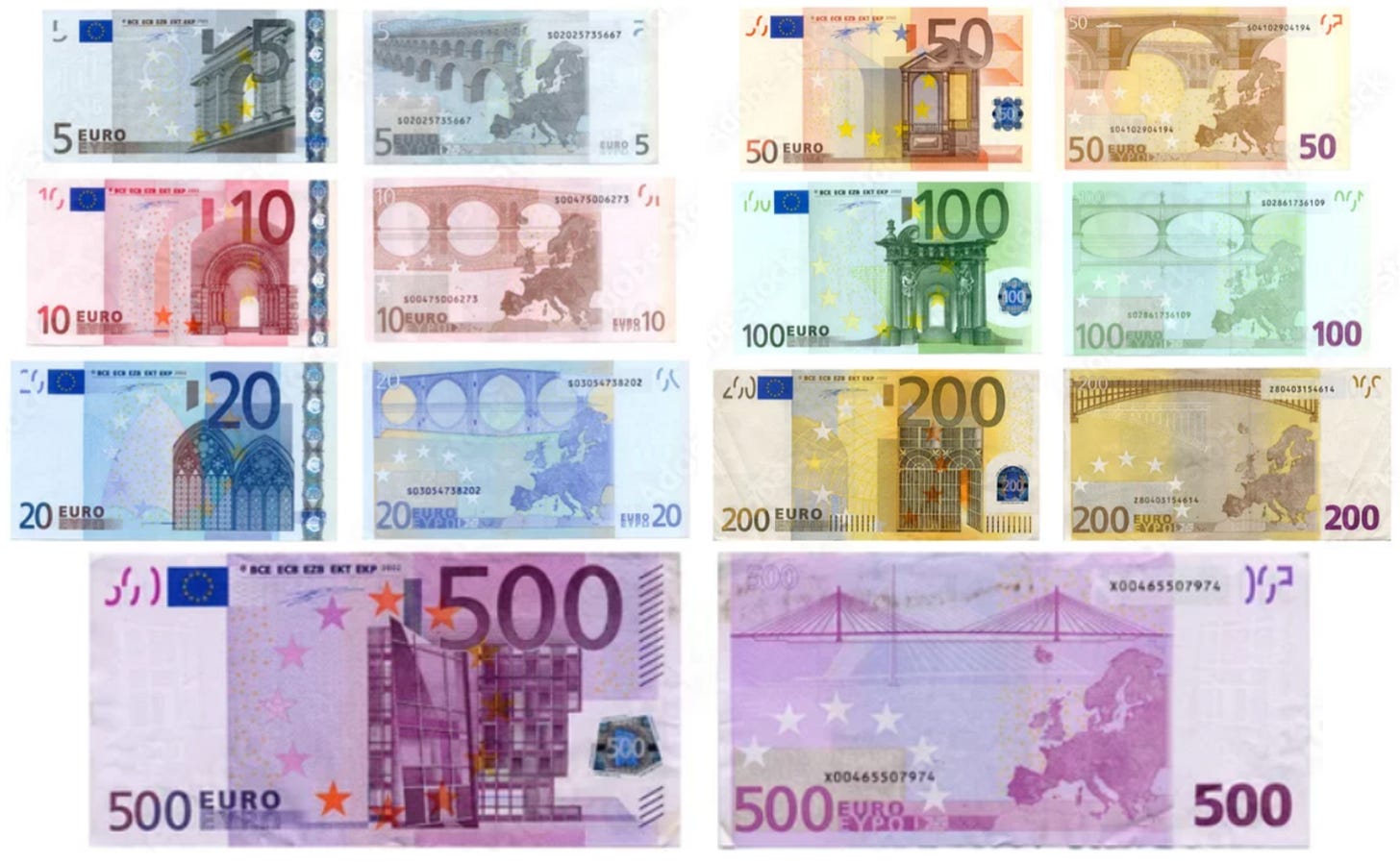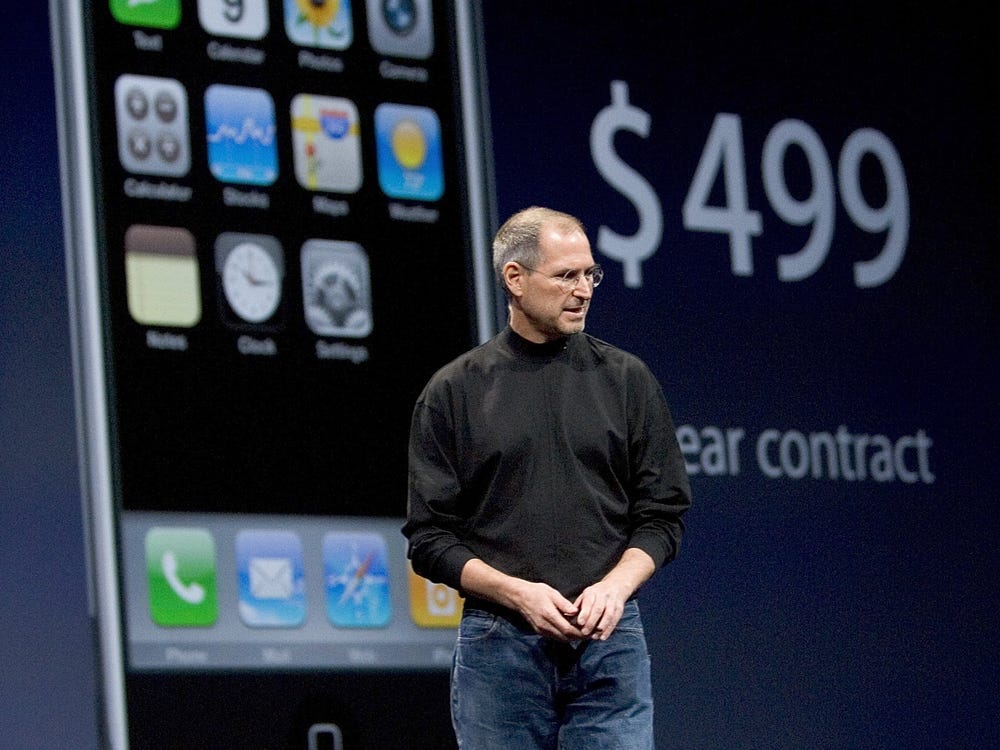Meet Brian, the UNRWA intern who in 2007 drafted the plan to destroy Israel
This is Part 2 of my screenplay about a (fictional) meeting of the leading activists and strategists in the global movement to 'Free Palestine!'
In Part 1, eleven prominent leaders of the Free Palestine movement gathered at a seaside villa in Gaza for an unprecedented summit meeting to discuss short-term tactics and long-term strategy. After years of fighting the Zionist entity (and losing), these men realize they need a better plan. Enter Brian, a summer intern with UNRWA. Brian came to the attention of the group during a recent beach bar-b-q, which was also a fundraiser for the Palestinian Authority’s Pay For Slay program.
Brian has an impressive CV: a B.A. in Comparative Lit from UC Berkeley; a Master’s in Social Psychology from Princeton; a PhD in Literary Theory from SUNY-Stonybrook; an MBA from Harvard; and a 6-month internship with the Boston Consulting Group.
DATE: August 23, 2007 (more than 15 years before the Nova music festival)
TIME: 10am
CAST OF CHARACTERS:
Mahmoud, President, Palestinian National Authority
Ahmed, Vice President, Palestinian Islamic Jihad
Yusuf, Director of Mergers & Acquisitions, Hamas
Mustafa, Minister of Mobile Communications, Hezbollah
Rashid, Executive Editor, Branded Content, Jaish al-Islam (Army of Islam)
Omar, Secretary of Suicide Bombing and Elementary Education, Al-Aqsa Martyrs’ Brigades
Ibrahim, President emeritus, Salafist Group for Preaching and Combat (Algeria)
Osama, founder of Al-Qaeda
Hassan, Director, Media Relations, Jemaah Islamiyah (Southeast Asia)
Tariq, Senior Supervisor, Customer Service, Popular Front for the Liberation of Palestine
Khalid, Vice President for Quality Control, Democratic Front for the Liberation of Palestine
Brian, Summer Intern, United Nations Relief and Works Agency for Palestine Refugees in the Near East (UNRWA)
Brian: …. And I can’t emphasize this enough: If you plan to slaughter a few thousand Israelis, rape women, incinerate children, and drag a couple hundred hostages back here to Gaza AND you’re also going to use your Palestinian brothers and sisters as human shields, then you need to ask yourselves some tough questions.
For example, how will the world react to this bloodbath? Will people be inspired by watching oppressed Palestinians rise up against their racist-colonial-apartheid-capitalist-communist-Christ-killing-infidel overlords? Will they support your liberation movement by marching with your flag in the streets of Paris, London, and New York? OR: Will your grotesque and barbarous pogrom repel them, forcing them to side with The Jew?
Ahmed: How can we know in advance how this massacre will play on the world stage? We’re not mind readers, Brian. We can’t predict what will happen 10 or 20 years from now!
Brian: Very true, Ahmed. That’s why Allah created market research, focus groups, and forecasting.
Omar: Forecasting? Like weather forecasting?
Brian: Sort of. My forecasting model relies on a powerful array of computer simulations I’ve developed. This computer model enables me to predict the future — 5, 10, 20 years in advance — so I can see social, cultural, economic, and political patterns emerging years before they occur in real life.
Rashid: So, what’s your forecast for us?
Brian: I see five important changes ahead — new developments that will eventually converge and explode on… [checks notes]… on October 7, 2023, creating a perfect storm that will catapult the Palestinian cause onto center stage in the Western world.
According to my forecast, in exactly 16 years, 1 month, and 15 days, everyone will be talking about you guys and supporting your liberation movement while the Kurds, Tibetans, Uyghurs, and Rohingya will go begging for crumbs.
Khalid: What’s a Rohingya?
Brian: Exactly.
1. Technology: “One more thing...”
Brian: The first change is a new technology — Apple’s new iPhone, which was introduced just a few months ago in California. Steve Jobs calls it a “revolutionary device... that changes everything.” And he’s right, it will change the world, but in ways he never imagined.
The iPhone and its many future imitators will not only radically transform the way people consume news, share ideas, create, and communicate. These devices will also rewire our brains and alter our body chemistry. They will make us all even more addicted to constant stimulation, novelty, and change.
As a result, we will lose track of time and our attention spans will atrophy. Our memories will fade, and so will history. With all the world’s information in the palm of our hands, we will no longer have any motivation to learn anything. Why remember the past — the Oslo Accords, say, or the Balfour Declaration — when we can, as the kidz will one day say, Google it. And when artificial intelligence goes mainstream in the 2020s, this dangerous situation will only get worse.
Ibrahim: Won’t people stop using their phones once they realize the technology is toxic?
Brian: No. Mobile phones will become ubiquitous and virtually impossible to stop using. Within 15 years, everyone will need them to survive. You won’t be able to buy food, order a meal, reserve a plane ticket, pay your bills, or communicate without one. There will be no way to escape this technology unless you go full Amish.
Ibrahim: Why… that’s diabolical!
Brian: That, my friend, is progress!
[laughter]
2. Trade, money, and markets: Birth of the New European
Brian: The second change that’s coming is economic.
Europe was once a collection of sovereign nation-states. But after the ravages of World War II, a group of economists had a dream: What if Europeans stopped thinking of themselves as citizens of particular countries that often went to war against each other and started seeing themselves as consumers of goods and services in a globalized economy? What if Europeans’ identities were grounded less in divisive nationalisms and more in a unified economic marketplace?
Enter: the European Common Market (1957), the European Union (1993), and the European Central Bank (1998). To make these institutions viable and garner popular support, it was necessary to break free from history and tradition. Nothing illustrates this rupture better than the design of the EU’s currency, the euro.
For reference, here are some coins and banknotes from the old Europe:

For the EU’s post-national fantasists, these types of banknotes were too specific, too parochial, too tribal and nationalistic. Giuseppe Verdi, Juan Carlos, and friends represented the old Europe of independent nation-states that EU economists and bureaucrats wanted to bury, which is why they designed the euro to look like this:

This gallery of generic bridges, windows, and portals is intended to evoke the general spirit of various historical eras without saying anything specific about them. The design was intended to stop Europeans from believing their lives are part of a bigger story with a colorful, sometimes turbulent past. Instead, they should think of “European” as more of a vibe, an attitude, or an aesthetic that can propel them toward a more prosperous and peaceful future. The new mantra: Let us look forward to what can be, unburdened by what has been.
Promoting this sort of collective amnesia takes chutzpah. It also explains why I predict that by 2030, this Fleetwood Mac song will become the European Union’s unofficial anthem:
Brian: Did you have a question, Mustafa?
Mustafa: If you refuse to look back and see where you’ve been, then aren’t you effectively committing civilizational suicide?
Brian: Yes, I think so. And since looking back is an Islamic specialty, Muslims have a superpower: You remember where you’ve been, so you know who you are. Meanwhile, Europeans have generally forgotten their past, so they can no longer envision a future. Advantage: Islam.
3. Immigration: “Imagine there’s no countries, It isn’t hard to do….”
Brian: The third change will be demographic.
In the coming years, the war in Iraq, the civil war in Syria, and other conflicts in the Middle East will create a massive surge of refugees into Europe. Millions of Muslims will arrive at the EU’s doorstep, and be welcomed with open arms. Europeans are empathetic people who feel a bit guilty for their past transgressions, which means you no longer need to invade the West. You only need to RSVP to their generous invitation.
Once you settle in the EU, you’ll be free to build your mosques, publicly amplify your call to prayer, and keep your traditions, just like in the old country. Gradually, your numbers will grow. Eventually, you will become fluent in the language of your host country and familiar with the rules and rhythms of democracy. You’ll organize, you’ll vote, and you’ll exercise real political power within the same nations that once colonized you.
The door to the West will soon be thrown wide open. You will only need to walk through it.
4. Philosophy: Ideas have consequences
Brian: The fourth change that’s coming is a philosophical one.
Thanks to the groundbreaking work of some bored French intellectuals in the 1960s and ‘70s, the ideas and traditions that have long served as the foundation of Western civilization will gradually disappear. Powerful solvents with names like post-structuralism, post-modernism, relativism, and multiculturalism will slowly vaporize the West from the inside.
Think about it: The pillars of Western civilization, many of which were originally conceived and constructed thousands of years ago in Athens and Jerusalem, are mostly made of words. Liberty, freedom, human rights, democracy, equality, the rule of law — these things don’t exist in nature. You can’t isolate them in a laboratory or see them under a microscope. You can’t even prove they exist. That’s because those words, all words, don’t have any absolute or inherent meaning, at least according to those bored French intellectuals. To them, words are just sound waves emanating from your mouth. They are ink marks on parchment, pixels on screens. And their meaning, their power, is always in flux. People, not the gods, determine the meaning of words and the shape of a society. Or, I should say, people with power determine what we do and how we think.
Quick sidebar: Donald Trump, the real estate developer and “short-fingered vulgarian” from New York City, will be elected President of the United States in 2016 and 2024. [laughter] … I’m not kidding. Trump will become the avatar for a culture in which words no longer have any shared meaning. Instead, words will become tools to manipulate, gaslight, mislead, and confuse. Power tools, you might say. Words will no longer help us discover the truth because words are meaningless and the truth does not exist.
Please forgive me for quoting a Jew, but Rabbi Abraham Joshua Heschel once said that “words create worlds.” He’s right. But words are gossamer thin. One powerful gust of wind can destroy almost anything words create.
Mahmoud: Wait… are you saying those new philosophies by the bored French guys might destroy Western civilization because people will no longer know what anything means, what is true, and what is worth defending?
Brian: That’s right. Let me give you an example. Take a look at this poster and tell me what you think of the tagline:
[The room explodes in laughter, which continues for a full minute. When Brian tries to continue speaking, another convulsive wave of laughs rocks the room…. After a few minutes, Rashid, the moderator, finally restores order.]
Tariq [trying to compose himself]: Do… does everyone in the West believe that “All Roads Are Good”?
Brian: Not everyone, but many do. Which gives you guys a powerful advantage. Muslims started traveling a very specific road back in the 7th century, and you’re still on it because you firmly believe that your way is the only way for everyone.
Islam’s global ambitions were once deemed a threat by the Christian West. You had to fight your way to Vienna and Tours. Now, in a post-Christian, post-modern world, calling you guys a threat or a danger is condemned as Islamophobia… because “all roads are good.”
[another explosion of laughter]
Incredible, right?
Ahmed, Yusuf, Mustafa, Rashid, Omar, Ibrahim, Osama, and Hassan (the Islamists): Allahu akbar!
5. Education: Rock the curriculum
Brian: The fifth change will be in higher education.
The Gulf states, especially Qatar, will “donate” billions of dollars to universities in Europe and the United States. The money will underwrite new departments in Middle Eastern Studies, Cultural Studies, Post-Colonial Studies, and Gender Theory, just to name a few. Professors will begin teaching classes like HIST 320: Deconstructing Hegemonic Discourses in Post-Colonial Praxis. Or, say, PHIL 402: Dialectics of Domination and Resistance: A Foucauldian Genealogy of Asymmetrical Power Architectures and Emancipatory Praxis. Students will read Fanon, Said, Achebe, Derrida, Memmi, Baudrillard, Barthes, and Butler.
College students will spend four years marinating in a lot of pseudo-intellectual goo, so when they graduate, they’ll be ready to deconstruct, decolonize, demythologize, and generally dismantle all the bad stuff in the world without any clear vision of what’s good. For a while, this will make them feel wise and strong, which will fuel their righteous rejection of society’s many lies and hypocrisies. Eventually, though, their lack of any positive vision of what the world should look like will leave them confused, anxious, and depressed. And that, my friends, gives you an opening and an opportunity.
Omar: Why should universities promote a “vision” or teach “what’s good”? Shouldn’t a liberal arts education show kids how to think instead of telling them what to think?
Brian: Hmmm… I’m not sure. That argument always struck me as flawed. But it’s worth remembering this: Harvard University was established in 1636 as a school to train Congregational ministers. Princeton was a Presbyterian school. Columbia was Anglican. Wesleyan was Methodist. Brown was Baptist. Kenyon was Episcopal. Yale was Congregational. It’s safe to say that graduates of those schools once knew at least a little Scripture, which gave them a positive vision of what the world could look like. Now most kids at those schools probably think Genesis is the Boomer-era rock group once fronted by Peter Gabriel.
Osama: … and later by Phil Collins.
Brian: Good point.
Before we break for lunch, let me summarize…
Five separate trends are going to emerge and then converge in the next 15 years, which will guarantee that your big plans for October 7, 2023, will be received enthusiastically by millions of useful idiots across the West.
Technology: The mobile phone will rewire our brains, alter our body chemistry, and make people even more addicted to constant stimulation, novelty, and change. So, a pogrom isn’t a catastrophe; it’s simply more content.
The New Europeans: In their rush toward economic integration, Europeans will sever their national roots and liquefy their identities. They will become a soft target for you.
Immigration: Muslims will be welcomed to Europe with open arms. Your presence there will profoundly affect how Westerners respond to global events.
Philosophy: A group of bored French intellectuals have served up some pseudo-intellectual drivel that will confuse and befuddle people in the West, who will no longer know what anything means, what is true, and what, if anything, is worth defending.
Higher education: American universities will soak up that French drivel, teach it to their students, who will then celebrate in the streets when Hamas invades Israel in 16 years and slaughters the Jews.
Beginning on October 7, 2023, the world will be your oyster.
Any questions?
Hassan: What’s for lunch?
COMING SOON: Part 3, in which Brian explains why the future of Islam is dependent upon the destruction of Israel.








I am his Highness’ Dog at Kew:
Pray tell me, sir; whose dog are you?
—Alexander Pope, 18th Century English Poet
I choose the Mystery over nothingness. I remember so as not to forget. Thanks, Alan.